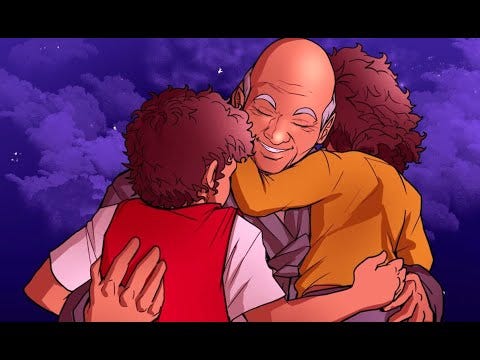Do you want to celebrate Matariki but don’t know how? Are you unsure what Matariki is? In our home, we love Matariki. Here’s a wee guide to what we do and what you can do too.
First of all, let’s start with the basics: What is Matariki?
Matariki is a cluster of stars - other people might call it Pleiades. The name comes from the phrase ‘Ngā mata o te ariki Tāwhirimātea’, ‘the eyes of the god Tāwhirimātea’.
Sometimes it’s called Māori New Year which in Reo Māori is ‘te Mātahi o te Tau’. Basically the rising of Matariki in the morning sky (just before dawn) is a sign for people to come together, to remember our late loved ones, celebrate the present, and prepare for the future.
It’s also now a public holiday that usually falls on the last Friday in June.
When is Matariki?
We as a whānau tend to just do Matariki ‘when we can see Te Huihui o Matariki’ (the cluster of stars of Matariki) or just ‘when we can’. But generally - the dates vary. This is because different iwi celebrate Matariki at different times, due to their different locations and also just different ways of doing stuff.
Everyone celebrates it in June or July though. Also, just so you know, some iwi in Whanganui, Taranaki, the Far North and the South Island refer to this period as Puanga rather than Matariki. In my whare, because my tamariki are Taranaki Whānui, we most often call Matariki Puanga or Puaka. Puaka is the Moriori Rēkohu version of Puanga.
If you’re not sure which one suits your region - it’s really just which collection of stars you see first - Matariki or puanga. Here’s a cute video about it to share with your tamariki out of my fave place Palmy lol.
How do I wish people a Happy Matariki?
You can say Mānawatia a Matariki! Or Ngā mihi o Matariki, te tau hou Māori!
How do I celebrate Matariki/Puanga?
You can celebrate it any way you like really. I’ll tell you what we do…first of all my husband always makes soup that we eat on the first night of Puanga.
We also say the names of the people we love and have lost to Pōhutukawa - the star that honours those who are now gone from this world. There’s been so much loss in the last year.
We will call their names and recite this karakia -
E tū Pōhutukawa e
Te kaikawe i ngā mate o te tau
Haere rā koutou ki te uma o ranginui
Haere ki te kete nui a tāne
Koia rā! Kua whetūrangitia koutou! Aroha mai! Aroha mai!
Behold Pōhutukawa
Who carries the dead of the year
Onward the departed to the chest of the sky
Onward into the milky way
Indeed! You have become stars! So loved! So loved!
Over a few days we make wishes to Hiwa-i-te-rangi - the star that represents the future. We share soup with neighbours and friends in honour of Tupu-ā-rangi and Tupu-ā-nuku - the stars for kai above and below. We try to get in a beach walk to honour Waitā, the star for the ocean. And to the stream for Waitī the star for fresh water. We don’t really do anything for Ururangi and Waipunā-ā-rangi because it’s always windy and rainy at this time of year in Te Whanganui-a-Tara lol.
Here’s a karakia for your kai:
Nau mai ngā hua
Nau mai ngā pai
Nau mai kia nui
Kia hāwere ai
Welcome all things that have grown
Welcome all things that are good
May they be plentiful and abundant
We usually join a community event as well, to mark the beginning of Puanga Matariki. And we do a kai shop and donate it to the food bank.
Every whānau ‘does’ Matariki differently and there’s no one way to ‘do’ it. This is just the traditions we have rolled into.
I’d love to know what you do - what traditions you’re starting in your whānau…
We also decorate the house with hand-drawn stars that we stick on the window (You can just download and print them here if you don’t want to draw them). Here are some things you can do with the kids and links that might help:
Weave stars with your kids (we don’t do this activity because I find it infuriating lol)
Here’s a good clip of the waiata that helps you learn the nine stars of Matariki!
For some folks, Matariki is a time of rejuvenation and reset for both people and planet. There is a movement to dedicate just one lunar cycle to actions for Papatūānuku like trying to reduce how much plastic you use or how much dairy you have over the course of Matariki. You can find out more about that kaupapa here.
So that’s it! I hope you have a very happy Puanga or Matariki. And I’d love to hear how you’re celebrating. Arohanui! Mānawatia a Matariki!




Such a great post of celebration., thanks Emily. We will be doing crafts at our grandson's school tomorrow 🤩.
I love the idea of doing a kai shop to donate/share.
We have a small potluck dinner and invite friends we haven’t seen in a long time and people we’d like to get to know better